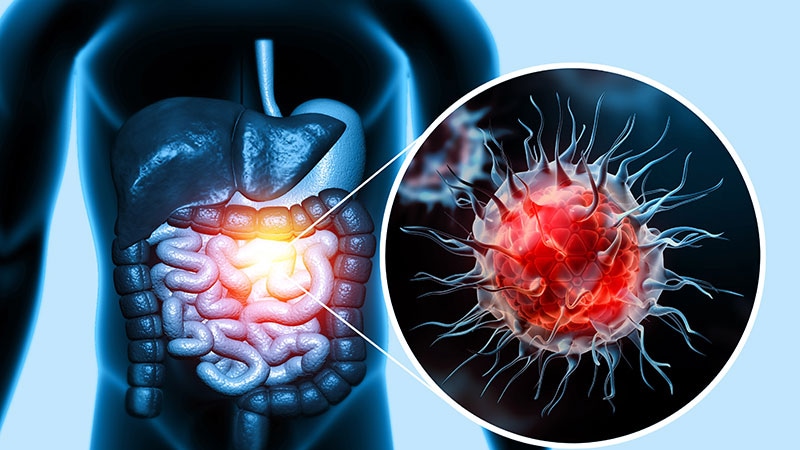How Early Colon Cancer Cells Evade Immune System Revealed
Core Concepts
Cancer cells evade the immune system through the SOX17 transcription factor, potentially offering new insights for cancer treatment.
Abstract
The content delves into the immune evasion mechanisms of early colon cancer cells, focusing on the role of the SOX17 transcription factor. Key highlights include:
Cancer cells become "immune-silent," hiding from the immune system.
Research reveals a potential new mechanism for immune evasion in early colorectal cancer cells.
SOX17, a fetal transcription factor, plays a crucial role in cancer development by downregulating the IFNγ pathway.
Blocking SOX17 activity could prevent early polyps from progressing to cancer.
Identifying drugs to target SOX17 is a potential future direction for cancer treatment.
New Data: How Early Colon Cancer Cells Evade Immune System
Stats
"They repress key genes that call in, and allow for recognition by, immune cells; so, they become super quiet."
"High levels of motifs recognized by the SOX family of transcription factors."
"With very little receptor, the cell cannot respond to IFNγ."
Quotes
"They repress key genes that call in, and allow for recognition by, immune cells; so, they become super quiet."
"One paramount role for SOX17 is specification of the intestine during embryogenesis."
Key Insights Distilled From
by Christina at www.medscape.com 03-12-2024
https://www.medscape.com/viewarticle/new-data-how-early-colon-cancer-cells-evade-immune-system-2024a10004ne
Deeper Inquiries
How might targeting SOX17 impact the immune response in cancer treatment?
Targeting SOX17 in cancer treatment could have a significant impact on the immune response. As seen in the study, SOX17 plays a crucial role in the immune evasion mechanism of early colorectal cancer cells. By blocking SOX17 activity, it may be possible to prevent these cells from becoming "immune-silent," allowing the immune system to recognize and target them effectively. Inhibition of SOX17 could lead to increased activation of T cells, which are essential in fighting tumors. This could potentially enhance the body's natural immune response against cancer cells, leading to better treatment outcomes.
How might targeting SOX17 impact the immune response in cancer treatment?
Developing drugs to block SOX17 activity may present several challenges. One major challenge is the specificity of the drug. Since SOX17 is a transcription factor involved in various biological processes, targeting it specifically in cancer cells without affecting normal cells could be difficult. Additionally, the safety and potential side effects of such drugs need to be thoroughly evaluated to ensure they do not cause harm to patients. Another challenge is the complexity of the immune evasion mechanisms in cancer. Cancer cells can develop alternative pathways to evade the immune system, so blocking SOX17 alone may not be sufficient to overcome immune evasion in all cases.
How does the immune-silent nature of fetal tissues relate to cancer immune evasion mechanisms?
The immune-silent nature of fetal tissues is related to cancer immune evasion mechanisms through the role of transcription factors like SOX17. Fetal tissues, including those in the intestine, need to avoid immune recognition to prevent rejection by the mother's immune system. SOX17, a fetal transcription factor, is crucial in maintaining this immune-silent state in fetal tissues. In cancer cells, the activation of SOX17 can mimic this immune-silent environment, allowing the cancer cells to evade detection by the immune system. By understanding how fetal tissues use mechanisms like SOX17 to avoid immune responses, researchers can gain insights into how cancer cells exploit similar pathways to evade immune surveillance.
0
